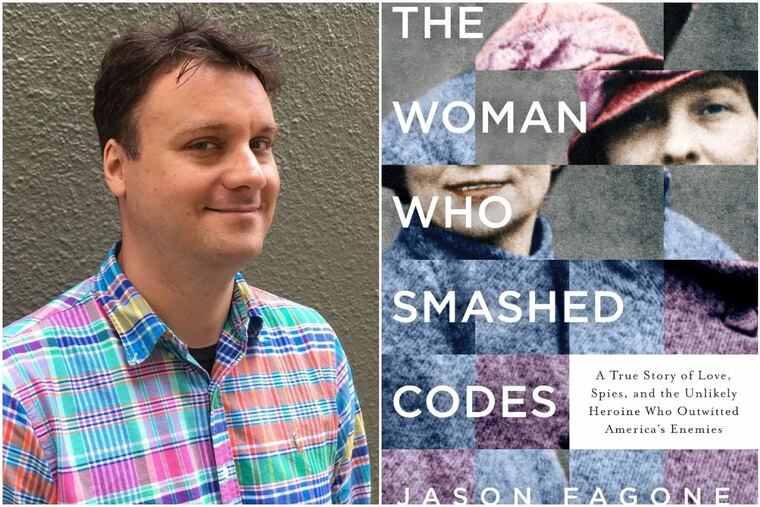'Good Wife' creators option Philly writer's book 'The Woman Who Smashed Codes'
Jason Fagone's "The Woman Who Smashed Codes" tells the long-hidden story of Elizebeth Friedman, whose accomplishments were so secret that J. Edgar Hoover was able to lay claim to some of them.

I wasn't more than a couple of chapters in to Jason Fagone's The Woman Who Smashed Codes: A True Story of Love, Spies, and the Unlikely Heroine Who Outwitted America's Enemies (Dey Street, $27.99) before I started imagining a Hidden Figures-like movie about Elizebeth Friedman, the subject of the longtime Philadelphia journalist and author's gripping new book.
Turns out it may become a TV show instead.
Read more: Meet the incredible woman who helped the U.S. win two wars by cracking codes
On Tuesday, Fagone, who recently moved west to take a job with the San Francisco Chronicle, shared the news on Twitter that Robert and Michelle King, the creators of the CBS drama The Good Wife and its CBS All Access spin-off The Good Fight, had optioned the rights to the book, which tells a long-hidden story about a brilliant woman whose accomplishments were so secret that then-FBI director J. Edgar Hoover was able to lay claim to some of them.
The Kings, who have a track record both with complicated female characters and the dramatization of complicated issues, feel like a good fit to deal with the story of Friedman, who, along with her codebreaker husband, William, led a complicated life while solving puzzles with life-and-death implications.
"There was a lot of interest" in the book, Fagone said in a phone interview Tuesday afternoon. "I connected with the Kings. They seem like very smart and capable people, and they have a great idea" for how to adapt the book for a series.
"I felt like right from the start they got it," he said. "I wouldn't want to steal any of their thunder" by describing their idea, "but it's cool …. They're interested in the feats of codebreaking themselves, and I think they'll be able to find a way to bring that to life on screen."
That would be in the spirit of Elizebeth Friedman, who never wanted codebreaking to be "some world apart" but thought it was important "for people to be able to connect to codebreaking, to be able to play with it, to think about it, to understand it," Fagone said.